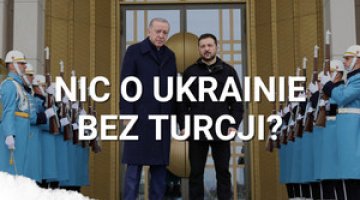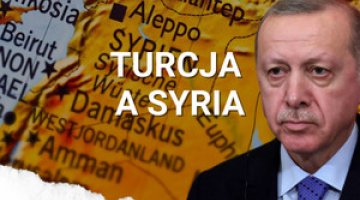Turkey’s military mission in Libya
During an extraordinary session on 2 January, Turkey’s parliament gave the government permission to send troops to Libya. In late December the UN-recognised Government of National Accord (GNA) in Tripoli sent an official request for assistance to the authorities in Ankara. The Turkish military presence is intended to support the forces of the government in Tripoli in its fight with the Libyan National Army (LNA) commanded by Marshal Khalifa Haftar. Haftar’s forces control most of the country’s territory, including its oil fields and strategic infrastructure.
Commentary
- The full extent of the military aid Turkey plans to send remains unknown. According to press reports and the general declarations President Recep Tayyip Erdoğan has already made, Turkey will send weapons, including combat aircraft & armoured vehicles, and military instructors to train with troops loyal to GNA. An intelligence-sharing plan has also been established. The presence of the Turkish forces is to be of coordinating and supportive nature. Tripoli’s expectations had included aid in the form of around 3000 soldiers, a dozen F-16 aircraft and naval vessels. Despite the support announced being less than hoped for, Tripoli has welcomed the Turkish declaration. Turkey had previously been unofficially militarily involved in Libya, providing a limited amount of military equipment and small units of pro-Turkish Syrian fighters and military advisers.
- Ankara’s main motivation is to establish a military outpost in Libya, which is intended to help Turkey realise its interests in the Eastern Mediterranean and North Africa. In early December last year Ankara and Tripoli signed an agreement on the delineating of exclusive economic zones. This move met with fierce criticism from Greece, Cyprus and the European Union: the division of the continental shelf between the countries concerned has been unresolved for years. By concluding this agreement with Libya, Ankara is seeking to delay any joint action by Cyprus, Greece and Israel, which are conducting advanced work on starting the extraction of natural gas from the Mediterranean Sea bottom and constructing a pipeline for transporting gas to Europe (the three countries signed a preliminary agreement on constructing the pipeline in Athens on 2 January). Ankara sees these actions as posing a threat to its own interests, and has demanded their postponement pending a political solution for Cyprus (Turkey is the protector of the unrecognised Turkish Republic of Northern Cyprus). In the longer term, Turkey’s military presence in Libya is aimed at strengthening its position in North Africa – particularly with regard to Egypt, with which Turkey still has a tense relationship, as well as to Russia and the European Union.
- Turkey’s decision to send troops to Libya means that it is becoming involved in a very complex situation, both in Libya and on the international stage. Since a split in the interim government in 2016, Libya has de facto been divided between the Government of National Accord (GNA) under Fayiz as-Sarraj, which now controls the western part of Libya’s Mediterranean coast along with Tripoli, and the army of Khalifa Haftar (leader of the Libyan National Army, LNA), which has its administrative centre in Tobruk, and controls most of the remaining territory: the east coast and part of the interior (the majority of the districts in the interior and the border zones are controlled by local tribal forces). In mid-December 2019, the LNA announced it was launching a final offensive on Tripoli. Paradoxically, however, Turkey’s official involvement in Libya has so far only weakened the GNA’s position inside the country, as Haftar has begun to position himself as a Libyan patriot fighting against foreign intervention; this recently helped him to take over the strategically important town of Sirte. Inside Libya, he is also being helped by locally strong and Turkey-averse Salafi groups. The GNA is seen as loosely linked to the Muslim Brotherhood, and is gradually losing not just territory, but also international support. It is currently being supported by Qatar and Turkey, and still enjoys the official recognition of the UN. Haftar’s international allies, however, include Egypt, the United Arab Emirates, Saudi Arabia, Jordan, Sudan, and Russia; since September 2019 Haftar has been actively supported by the Russian mercenary corporation known as the Wagner Group. The US has adopted an increasingly ambivalent stance, emphasising above all the need for de-escalation. Most of the EU countries concerned still formally recognise the GNA, but are increasingly coming around to Haftar (France, Cyprus, Greece; Italy still maintains its unequivocal support for the GNA). The European Union is in favour of deescalating the conflict and introducing a comprehensive arms embargo – which at present is being regularly violated – as well as a peaceful solution within the framework of the Berlin process (with the participation of the UN’s Special Representative Ghassan Salamé).
- Turkey’s entry onto the Libyan stage, even to a limited extent, means a return to its more active policy in the region, which it had abandoned upon the failure of the so-called ‘neo-Ottoman’ project endorsed by the former Prime Minister Ahmet Davutoğlu. In the present context, though, this return represents a very high risk, as it will further antagonise almost all the countries of the eastern Mediterranean; besides the aforementioned Greece, Cyprus and Israel, Egypt is also strongly opposed to Turkish influence. Nor is it certain what reaction to these activities will come from Russia, which supports Haftar (Turkey is hoping to create a peace format similar to the Astana process, which is engaged in resolving the Syrian conflict). The presence of Turkey’s forces in Libya will additionally signify its entry into the conflict between Italy and France, which are keenly interested in deescalating the conflict. For now, though, the local Libyan communities has reluctantly accepted it.





